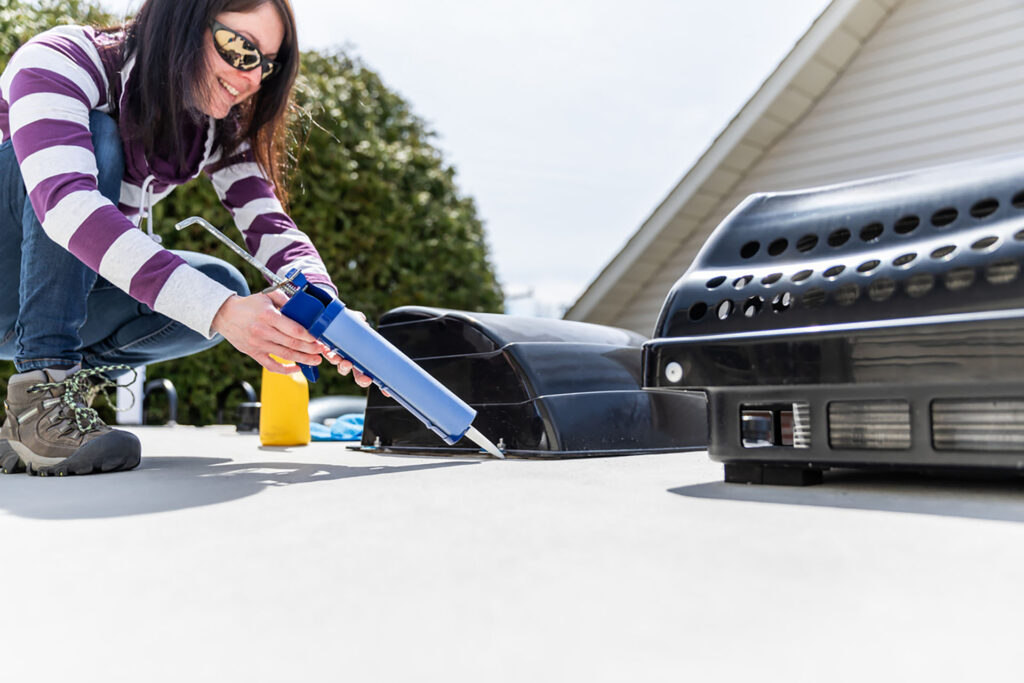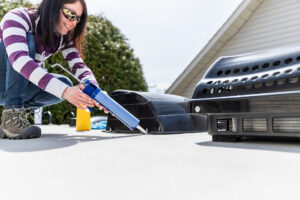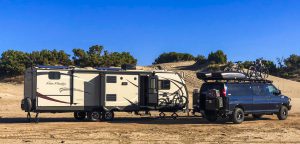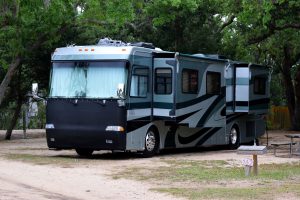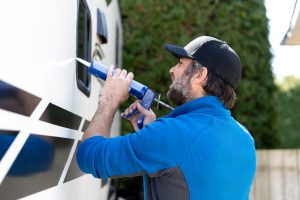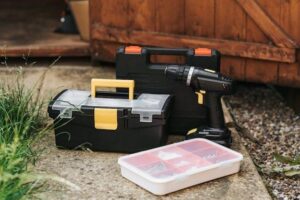The open road is beckoning, promising adventure and escape. Before you hit the gas in your trusty RV, though, you must ensure your home away from home is in tip-top shape.
Regular RV maintenance, especially for your vehicle’s engine and chassis, is critical to keeping those wheels turning and avoiding unwelcome breakdowns that can disrupt your dream vacation.
This article examines the importance of regular RV engine and chassis service, explaining why preventive care matters and sharing some basic steps you can take today to prevent engine and chassis problems.
Why Does Regular Engine and Chassis Care Matter?
Regular engine and chassis care for your RV goes far beyond just keeping it running. Here are some reasons why it should be a top priority:
Safety First
A well-maintained engine and chassis are crucial for safe travel.
Regular service gives you a chance to identify and address potential issues before they escalate into major breakdowns, leaving you stranded on the side of the road. For example, worn brakes, faulty steering components, or leaking fluids can all pose serious safety hazards.
Performance and Efficiency
Consistent maintenance ensures your engine runs smoothly and efficiently.
Fresh oil reduces friction, leading to better fuel economy and increased power. A well-tuned engine also translates to less wear and tear on other components, extending the overall lifespan of your RV.
Peace of Mind
Knowing your RV has been thoroughly checked and serviced eliminates the constant worry of breakdowns. You can focus on enjoying your adventures with the confidence that your vehicle is reliable and up for the journey.
Resale Value
Regular maintenance keeps your RV in top condition, both mechanically and aesthetically. This translates to a higher resale value down the road if you ever decide to upgrade. Potential buyers will also be more interested in purchasing an RV with a documented service history.
Preventative Maintenance Saves Money
While regular servicing requires an initial investment, it’s significantly cheaper than dealing with major repairs caused by neglect. Early detection and correction of minor issues will prevent them from snowballing into more expensive problems later on.
Signs There’s Something Wrong with Your RV Engine or Chassis
Even with regular maintenance, things can go wrong with your RV engine or chassis. The sooner you can spot them, the better.
Here are some warning signs that might indicate trouble with your RV’s engine:
- Performance Issues: Decreased acceleration, difficulty maintaining speed on inclines, or unusual vibrations could indicate problems with the engine itself, fuel system, or spark plugs.
- Strange Noises: Knocking, ticking, or grinding sounds coming from the engine are never a good sign and require immediate attention.
- Warning Lights: Don’t ignore illuminated warning lights on your dashboard. Each light signifies a specific issue — consulting your owner’s manual or a mechanic can help diagnose the problem.
- Excessive Smoke: Black or blue smoke coming from the exhaust pipe indicates potential problems with burning oil or improper fuel combustion.
- Fluid Leaks: Leaks of oil, coolant, or brake fluid are a red flag. These fluids are vital for proper engine function, and leaks can lead to severe damage if left unaddressed.
Meanwhile, these signs can point to problems with the RV’s chassis:
- Steering Problems: Difficulty steering, a loose steering wheel, or vibrations while steering can indicate problems with the suspension, steering components, or tire wear.
- Uneven Tire Wear: Premature or uneven tire wear can be caused by improper inflation, suspension issues, or wheel alignment problems.
- Strange Sounds from Underneath: Clunking, groaning, or scraping noises from underneath your RV can signify problems with the suspension, brakes, or chassis components.
- Pulling: If your RV consistently pulls to one side while driving, it could indicate misaligned wheels, suspension problems, or worn brake pads.
- Soft Brakes: A spongy or soft feeling when pressing the brake pedal suggests a problem with the braking system and requires immediate attention.
If you notice any of these issues, don’t hesitate to reach out to a professional. The sooner you get help, the less likely you are to deal with more expensive and potentially dangerous RV problems.
How to Prevent RV Engine and Chassis Damage
Regular maintenance is vital for your RV’s health and longevity, but there are additional steps you can take to minimize the risk of engine and chassis damage between service intervals. Here’s how to be a proactive RV owner:
Pre-Trip Inspections
Before embarking on a summer adventure, autumn getaway, or anything in between, get into the habit of performing a quick visual inspection of your RV. Check for fluid leaks, proper tire pressure and tread wear, and any loose components underneath.
Mind Your Weight Limits
Don’t overload your RV. Exceeding weight limits puts excessive strain on the engine, chassis, and suspension, leading to premature wear and tear. Consult your owner’s manual for specific weight capacities.
Drive Smart
Avoid aggressive driving habits like rapid acceleration, sudden braking, and sharp turns. Maintain a steady speed whenever possible, especially on uneven terrain, to reduce stress on the engine and chassis.
Weather the Elements Wisely
Extreme weather conditions can take a toll on your RV. During hot summers, ensure proper engine cooling by maintaining coolant levels and using appropriate oil viscosity. In cold weather, allow the engine to warm up sufficiently before driving to avoid putting strain on cold components.
Watch the Road
Be aware of road conditions and avoid potholes, large bumps, and debris that can damage the chassis and suspension. Slow down when encountering uneven surfaces to minimize impact.
Proper Storage
When not in use, store your RV in a cool, dry, and well-ventilated location. Proper storage helps prevent moisture buildup that can lead to rust and corrosion. If you’re storing your RV for extended periods, consider using battery tenders to maintain battery health and fill the fuel tank to prevent condensation.
Need Help with RV Maintenance?
As you can see, regular engine and chassis care is essential to keeping your RV running smoothly. Failure to address issues right away can be expensive and even life-threatening!
Keep the information shared in this guide in mind so you can pick up on potential problems sooner, prevent additional damage, and ensure your RV remains in impeccable condition all year round.
Do you suspect there’s something wrong with your RV engine or chassis? Do you want to make sure everything is okay before you hit the road?
Either way, Leisure Coachworks is here to help. Contact us today to learn more about our RV maintenance services.
